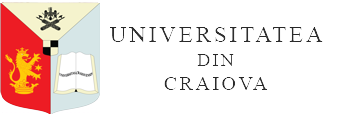NEW VARIETIES OF APPLES WITH GENETIC DISEASE RESISTANCE, OBTAINED AT VOINESTI DEVELOPMENT RESEARCH STATION FOR FRUIT GROWING
DOI:
https://doi.org/10.52846/aamc.v52i1.1327Abstract
The research carried out at Voinesti research-development station for fruit growing, considered highlighting the performance characteristics of some apple varieties with genetic resistance to diseases, approved in the period 2004 - 2020.
The vigour of growth in the 10th year of the trees, grafted on the M.9 rootstock, is well defined by the trunk circumference, which records values between 14.9cm for the Cezar variety and 18.4cm for the Redix variety. The volume of the crown calculated per surface unit, at the plot of 2,857 trees/ha, was 6,520 mc/ha for the Brumar variety, being of low-medium vigour, and 8,800 mc/ha for the Redix varieties, being more vigorous.
The productivity during the full fruiting period of the 10 apple varieties with genetic resistance to diseases, cultivated in a high density system, was between 28 - 45t/ha, the most productive being the Iris, Real, Remar, Valery, Brumar and Cezar varieties with productions of over 35 t/ha. The biomass of the fruits was between 155 and 180g, smaller fruits being recorded in the varieties Iris, Inedit, Voinicel and Revidar and larger in the varieties Cezar, Valery, Remar and Redix with fruits over 170g that correspond to market requirements. The apple varieties approved at SCDP Voinesti between 2004 and 2020 meet the demands of the producer, sensitive to economic efficiency, with high production potential, with quality fruits, which will certainly meet the ever-growing consumer demands.


